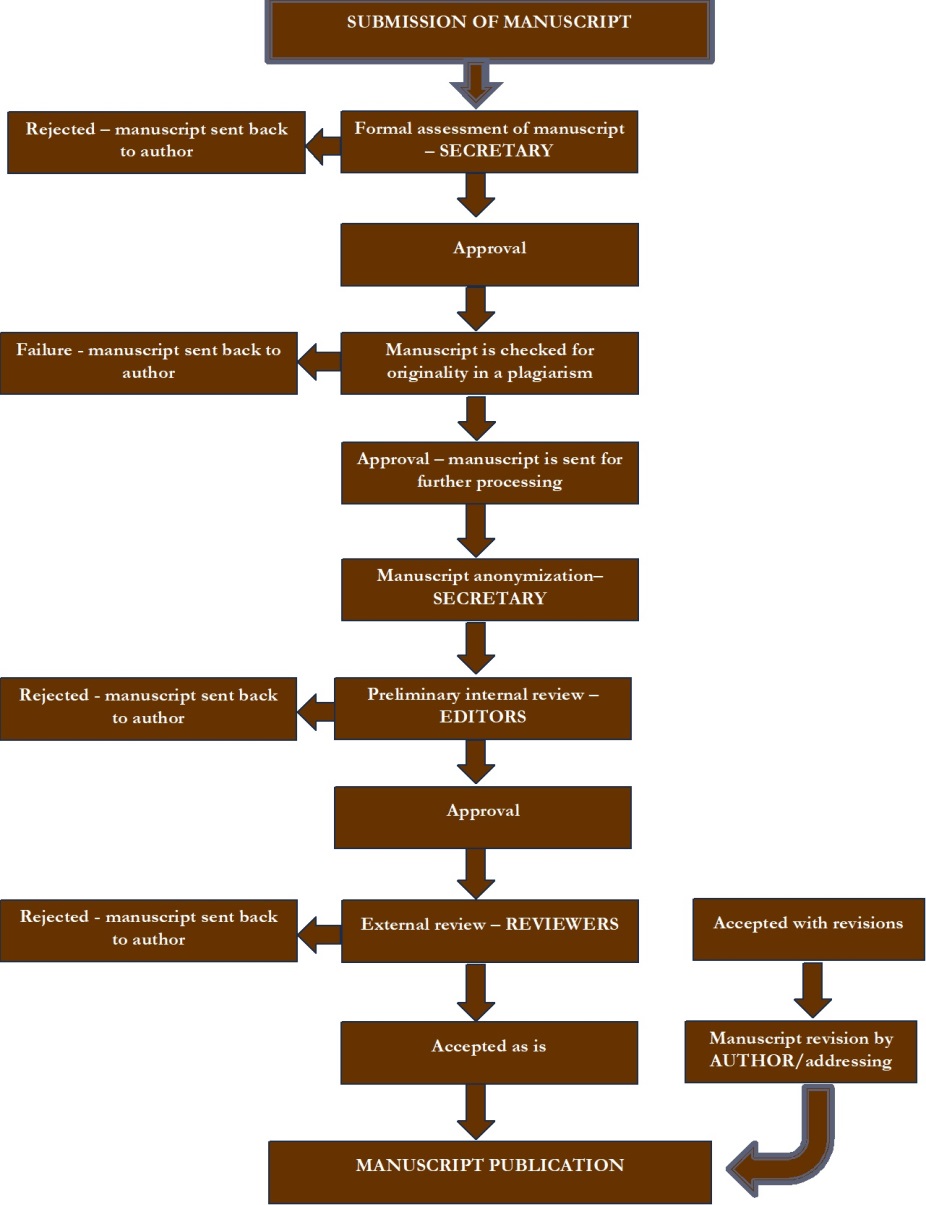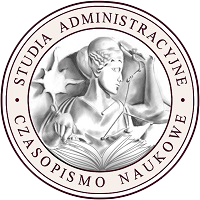To ensure high quality and non-bias in reviewing papers published in our journal, the editorial team of Studia Administracyjne have designed a multi-step review procedure. All papers are subject to review save for book reviews, conference proceedings and reports from training and discussion sessions and announcements of and reports from important events.

Formal Assessment of Manuscripts:
- The Secretary is responsible for formal checks based on criteria outlined in Instructions for Authors.
- Where a manuscript fails to meet any of the formal criteria, it is sent back to the Author along with a note about missing or incorrect elements.
- Authors who submit manuscript are given several forms to fill out: declaration about manuscript’s originality, data processing consent form and a non-inclusive licence consent form.
Manuscript Anonymity:
- The Secretary removes from the text (including from file properties) any information about the identity of the Author/Authors
Internal Review:
- The Editor-in-Chief together with the Subject Editor carry out a internal review of manuscripts to see if they align with the journal’s research scope and if there are original (plagiarism checker is used).
- If they suspect academic fraud, plagiarism and self-plagiarism in particular, the editors, having exhausted measures of the ethics procedure, may decide to reject the manuscript and notify the Author’s institution about it.
- Selection of two External Reviewers.
- The Editor-in-Chief may consult a manuscript with an expert in a given field, especially with a member of the Editorial Board.
External Review
- Two External Reviewers not affiliated with the Author’s institution; for manuscripts submitted by Authors from outside of Poland (in a foreign language) - at least one reviewer affiliated with a foreign institution.
- Criteria for manuscript assessment: assessment of subject matter, assessment of method, assessment of substantive content, formal assessment; manuscripts that score below 60% of maximum points will not be considered for publication; Reviewers may offer their suggestions, proposals for changes and reasons for the assessment.
- Reviewers present their recommendations: accept (as is/with substantive revisions/with major re-editing/with completion and development of research), reject
- Reviewers write their reviews within one month from receiving the manuscript.
- If in doubt, the editors will decide whether or not to publish a paper based on the reviews; a third Reviewer may be asked to be involved; if at least one of the reviews recommends rejection, the manuscript will be rejected.
Presenting the Review to the Author:
- Presenting the review to the Author.
- If the Reviewers recommend changes, the Author must revise their manuscript and address Reviewers’ comments within 2 weeks.
Decision:
- If reviews recommended changes, revised manuscripts are sent back to the Reviewer.
- If the Reviewer or Editor-in-Chief together with the Subject Editor accept the revised manuscript (in cases where the revised text was not sent back to the Reviewer) it is sent to be published.
- If the Author fails to revise the manuscript following Reviewers’ recommendations or fails to address Reviewers’ comments or if the revised manuscript is rejected by the Reviewer/Editor-in-Chief together with the Subject Editor, the manuscript is rejected.
All stages of the review procedure (internal and external) are anonymous (double-blind review process), which means that the Reviewer does not know whose text they are reading and the Author, even after their manuscript is accepted, does not know the identity of the Reviewers.






